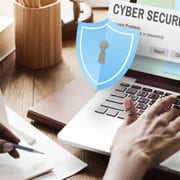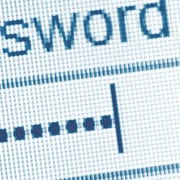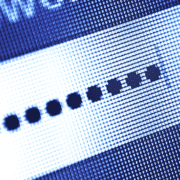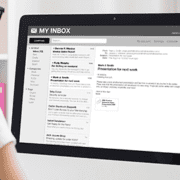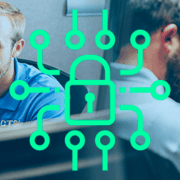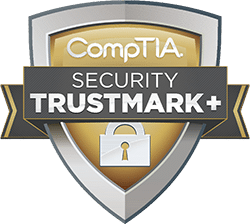4 Endpoints That Should Always Be Protected
An endpoint is any device that is connected to a network.
Endpoints used to be primarily desktop computers, but that has changed with the growing variety of internet-connected devices and the rising popularity of working remotely.
All of the computers, phones, tablets, printers, and other devices hooked up to your office network are considered endpoints.
Different types of endpoints present their own security challenges, but any endpoint connected to your network needs to be protected to keep your network secure.
Here are 4 of the most common types of endpoints and how to protect them.
1. Computers
Computers require a powerful firewall along with the latest antivirus, anti-spyware, anti-ransomware and anti-malware software.
Training your employees on using strong, unique passwords is also vitally important.
When not in use, all of your computers should be inside locked rooms that are equipped with security cameras and alarms.
Number your computers as well, and take inventory every so often to ensure that none of your devices have gone missing.
Related Article:
2. Printers
When you think about cybersecurity, you might not think about your printers — which is what makes them so appealing to criminals.
Hackers can infiltrate these connected devices and install malware. Alternatively, a thief could break into your offices, steal a printer and hack into it later on.
To keep such an event from happening, your printers should be protected by strong passwords as well as intrusion detection software and anti-malware programs.
Be sure to encrypt all of the data that you send to your printers. That way, if someone’s spying on one of your machines, they won’t be able to read your documents.
3. Kiosks
You might let your customers use computerized retail kiosks to select products, make payments, and get information.
However, bad actors could infect those machines with malware. For that reason, don’t forget to install strong anti-malware programs on all of your kiosks.
Also, it’s wise to connect your kiosks to the internet via a 4G LTE network instead of a WiFi network. The former authenticates your identity; the latter isn’t as secure.
4. Mobile devices
Mobile device protection is especially tricky. That’s because your employees will bring your company’s phones and tablets to remote locations without supervision.
Thus, only allow staff members to take your network-connected mobile devices if they’ve been with you for a while and have really earned your trust.
On top of that, be clear about your BYOD (bring your own device) office rules.
Here are a few good ones to consider:
- Your workers should only log in when they’re sure no one is behind them, looking to steal their password.
- They should utilize the passcode lock.
- They should avoid public WiFi networks and unfamiliar links.
- They shouldn’t respond to text messages or download apps from unknown parties.
- They should report missing devices right away.
Related Article:
As a final note, it’s beneficial to team up with a reputable managed IT services company.
The people who work there will monitor your network for the slightest signs of trouble.
They’ll also conduct comprehensive infrastructure checkups periodically and provide you with all necessary upgrades.
With good policies and great collaborators, you can have faith that your endpoints will be impenetrable to the dark side of the internet.


